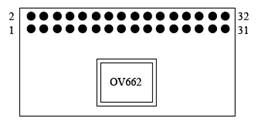Despite the fact that depression is a disease that is diagnosed and treated by medical methods, it can be identified with fairly high accuracy with the help of ordinary tests for depression. Our site has prepared for you a list of questions that will help you to understand yourself and to distinguish depression from the usual melancholic state and nervous breakdown or banal fatigue.
We strongly recommend to pay attention to the fact that the results of the tests presented below are not medical reports. Remember: a medical report is made only by a doctor! If you think you are depressed, please take care of yourself and consult a doctor. Test results can take with you 🙂
Test 1
You have 20 questions. The answer to each question is equal to a certain number of points. At the end of the test, you need to compare the points with a special scale to determine the diagnosis.
How often do you wake up at night?
- I do not wake up. (0)
- Occasionally. (one)
- Periodically. (2)
- Regularly. (3)
What time does this happen?
- Never. (0)
- Around midnight. (one)
- Closer to 3 m in the morning. (2)
- Throughout the night. (3)
Do you feel emptiness or confusion after waking up?
- Not. (0)
- Sometimes I feel. (one)
- I often feel it. (2)
- Constantly feel. (3)
Is it hard for you to sleep after waking up?
- Not. (0 points)
- Occasionally. (one)
- Periodically. (2)
- Regularly. (3)
Do you see dreams?
- Not. (0)
- Occasionally. (one)
- Periodically. (2)
- Regularly. (3)
How often do you remember positive moments from the past?
- Never. (3)
- Occasionally. (2)
- Periodically. (one)
- Regularly. (0)
How often do you remember negative moments from the past?
- Never. (0)
- Occasionally. (one)
- Periodically. (2)
- Regularly. (3)
Do you pursue the idea that before was better?
- Not. (0)
- Occasionally. (one)
- Periodically. (2)
- Regularly. (3)
How often does your conscience bother you?
- Never. (0)
- Occasionally. (one)
- Periodically. (2)
- Regularly. (3)
How are you subject to empathy?
- Strong. (2)
- Moderately. (one)
- Weakly. (0)
- This feeling is unfamiliar to me. (2)
How often do you blame yourself?
- Never. (0)
- Occasionally. (one)
- Periodically. (2)
- Regularly. (3)
Evaluate your need for communication?
- Low (3)
- Moderate. (2)
- High. (one)
- Vital. (0)
Do you often imagine your death as a result of an accident or an accident?
- Never. (0)
- Occasionally. (3)
- Periodically. (0)
- Regularly. (0)
Do you make plans for the future?
- Yes. (0)
- Sometimes I dream. (one)
- No time. (2)
- I do not see the point. (3)
How much time do you spend on the street a day?
- Less than half an hour. (3)
- Half an hour to an hour. (0)
- More than an hour. (0)
- More than four hours. (3)
Do you often take random views or insults at your own expense?
- Never. (0)
- Occasionally. (one)
- Periodically. (2)
- Regularly. (3)
How often do you hear the inner voice?
- Never. (0)
- Occasionally. (one)
- Periodically. (2)
- Regularly. (3)
Do you often notice laughter without a reason?
- Never. (0)
- Occasionally. (one)
- Periodically. (2)
- Regularly. (3)
Are you satisfied with your physical health?
- Full (3)
- Rather yes than no. (2)
- More likely no than yes. (one)
- Not satisfied. (0)
Are you satisfied with your mental health?
- Full (0)
- Rather yes than no. (one)
- More likely no than yes. (2)
- Not satisfied. (3)
Now it makes sense to sum up the points and compare interpreting them using the information below.
Interpretation of the test results for depression
0-15 points
Definitely, you have no clinical depression, most likely there was a stress or conflict situation that caused mental health damage.
15-30 points
Border state. It is observed in people with low stress tolerance. Most likely there is no depression.
30-45 points
Monotonous depression, which is accompanied by apathy, lethargy, lack of interest in life.
45-60 points
Severe depression, which requires immediate intervention and treatment, otherwise the disease will turn into a chronic form.
Curious:
Question number 15 is directly related to depression. The fact is that when walking in the sun, tryptophan is synthesized in the body - a substance that normalizes the mental state. However, if a person spends more than 4 hours on the street and still wonders about the presence of depression, he has serious problems. The same thing happens if you never happen on the street at all - the depression will be a constant background.
Binary test
Such a test for depression consists of three situations, quite indicative, in which there are only two outcomes. Each situation can be considered separately and can identify depression with a certain level of probability.
Crash
You have witnessed the accident in which the dog suffered. The accident occurred on the highway, far from populated areas, and the driver escaped from the scene. There is a wounded animal on the road, but you can take it to a hospital nearby. Navigator shows a distance of 4 km. Your actions:
- Try to help the animal, despite the fact that it may die right in your arms.
- Leave him to die on the road, so as not to be responsible for death.
- If you choose the first option, then from a medical point of view, everything is in order, since the first symptom is the lack of empathy and the fear of death.
- The second option is about the extreme stage of depression. Walk 4 km - a matter of half an hour, and the animal that you saved, can become your pet. But when a person is depressed, only bad thoughts come to his head without hope of a better life.
Make a wish
You saw how a star falls from the sky, and since it is customary to make a wish, you decided to try your luck. But only two options come to mind:
- Return to the past and correct mistakes.
- Have the ability to stop time.
- The first option says about the beginnings or the course of depression. Living in the past is a very common tendency for those who are depressed.
- The second option indicates the absence of the disease. Everybody in life has moments that I would like to “replay”, but the time has passed and all that can be done is to ask for more time to make decisions in order not to make mistakes in the future.
Important conversation
In life, luck turned its back on you, since childhood everything was difficult, but you walked confidently and for a long time to the goal. Once you got the idea to visit a fortune teller and she told you that your fate was hard and there would be a black streak in life until death. You have been cursed, damaged, crown of celibacy and a terrible evil eye. You will not have a loved one until the end of days, and your friends will betray and deceive. The conversation impressed you, but on the eve of the planned relocation to another country for permanent residence. Your actions:
- To wave at everything with your hand and accept your fate. Cancel the flight and continue to go with the flow.
- Do not deviate from the intended path and go to the goal.
- The first answer is a clear sign, since giving up and believing in the worst outcome is the first thing that comes to the depressive head.
- The second way will be correct, because if a person tries to do something, it does not always turn out, and if he does not try, it never happens. Such theses do not occur to the head when the depression is firmly entrenched in the body.
Conclusion
The test result is not the ultimate truth and can only give approximate results. However, to understand yourself and minimize the likelihood of self-hypnosis, the test will not interfere.




